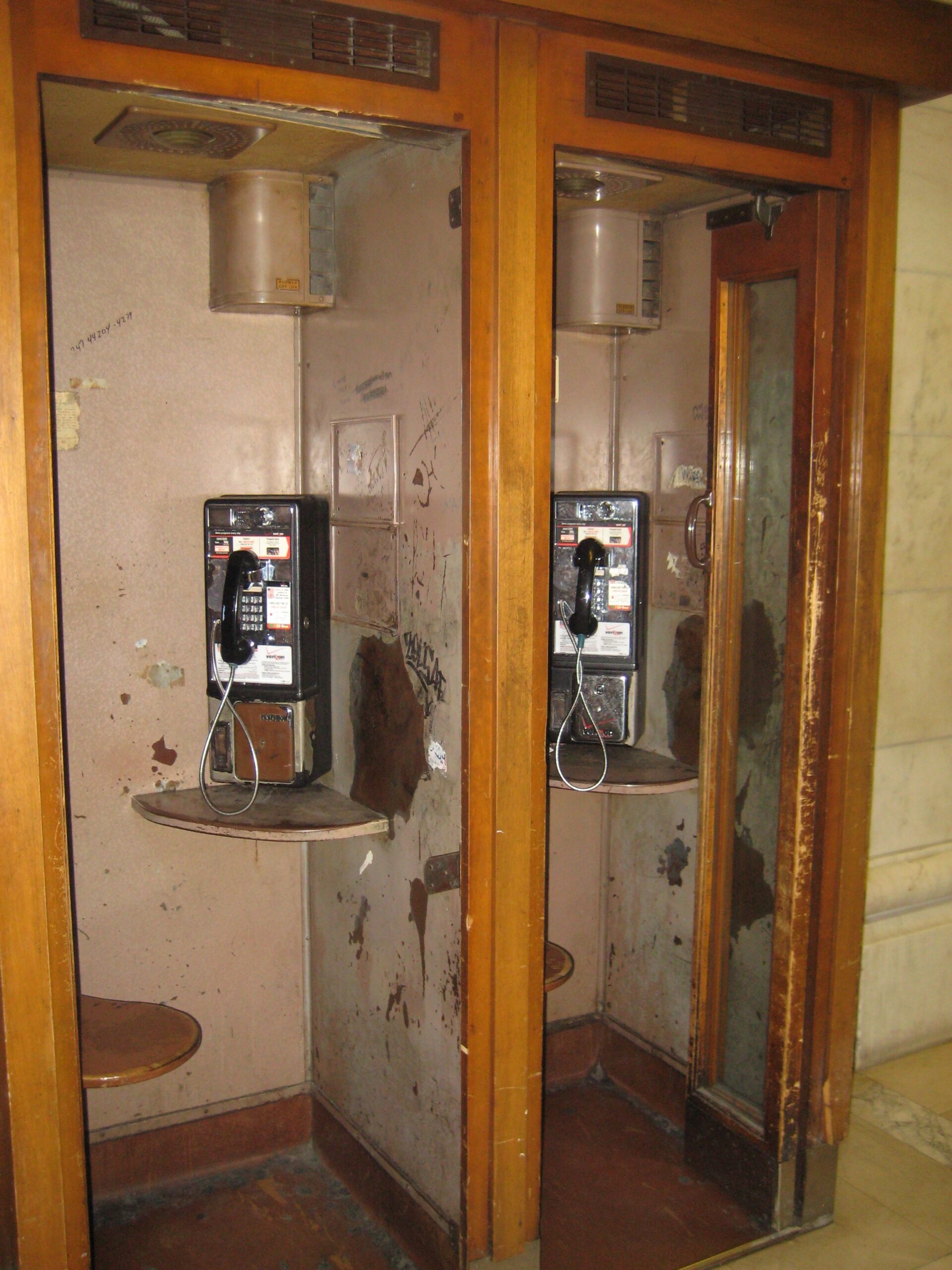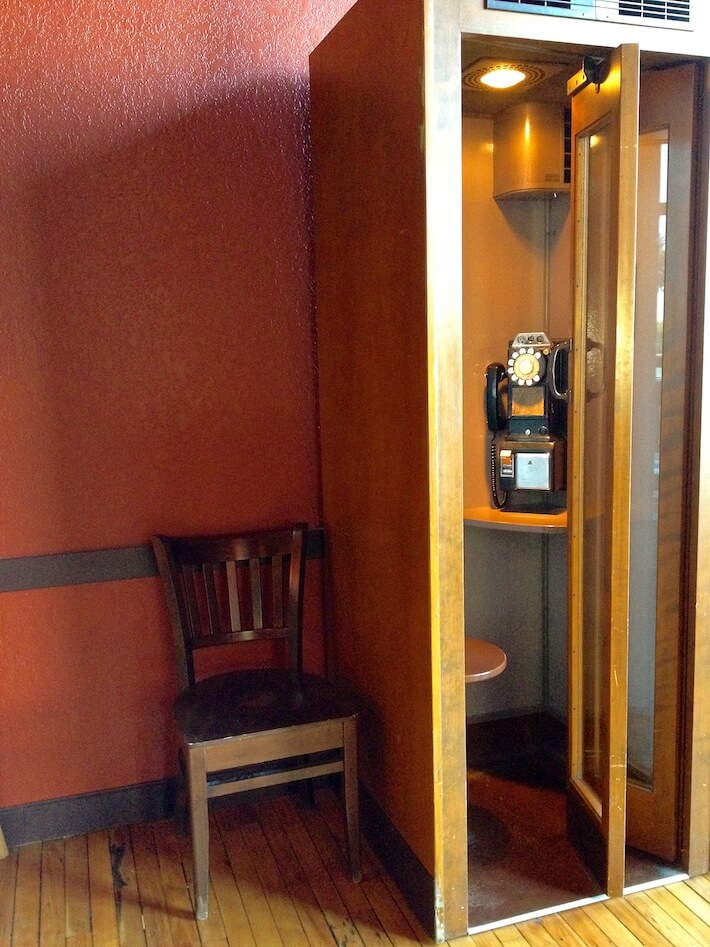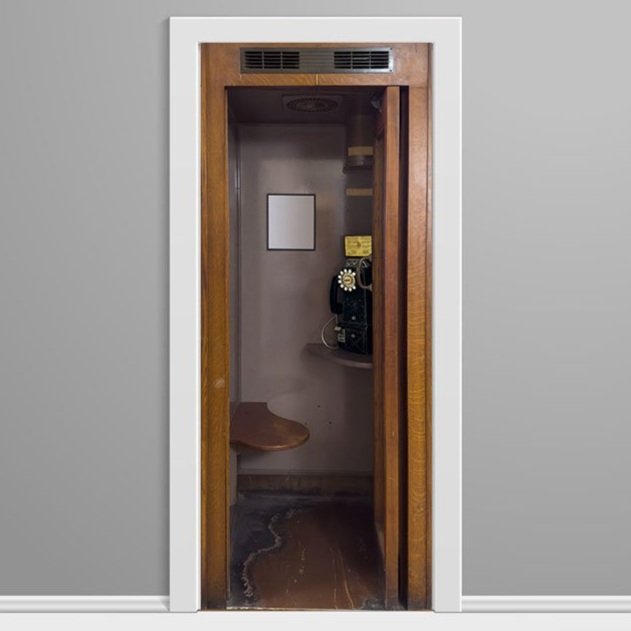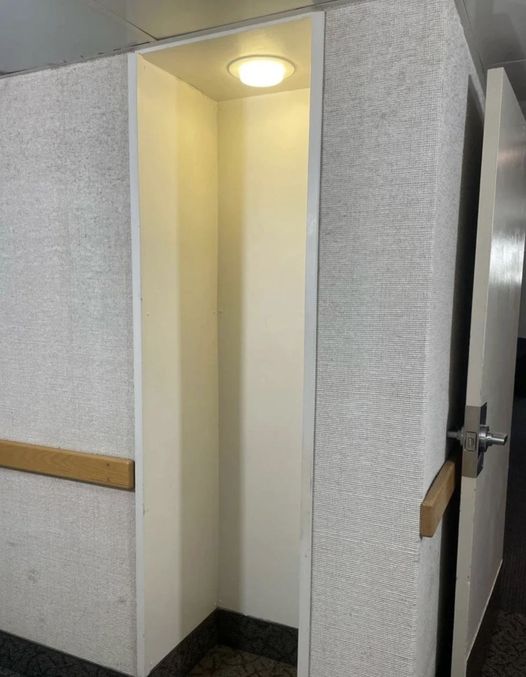There was a time when if you wanted to hear a loved one’s voice, you couldn’t just pull out a smartphone. Imagine having to dig into your pocket for coins, twirling a rotary dial, and waiting anxiously for the call to connect. For many, especially college students from the ‘60s, ‘70s, and ‘80s, the ‘phone booth’ was more than just a utility. It was a quiet escape from the bustling, noisy college dorms.
Have you ever stood in front of old college dormitories and noticed small niches with a light bulb above and sometimes a little shelf? These were not merely empty spaces. These were phone booths, or phone niches, that once played a crucial role in campus social life. Students from across the country flocked to these booths to call their parents, report in, or chat with friends late into the night. In a time without cell phones, these booths were a cherished link to the outside world.

The 1960s and 1970s marked a revolution in telecommunications. Even as some households began to get private phones, public payphones remained essential, especially in crowded places like dormitories. Many students hailed from different parts of the country and their parents could only hear from them occasionally through a phone call. That’s where these booths were invaluable. Dorms were often noisy with countless distractions. These booths provided a quiet, private place for students to make calls, offering some solace for a few precious minutes.
These spaces weren’t large enough for a full door. They offered just enough room to stand by the wall and make a call. Students could converse without bothering or being disturbed by others passing by. The small overhead light, still found in many such places, wasn’t just functional. It signified a brief reprieve from the whirlwind of student life.
By the late 1990s and early 2000s, the humble phone booth began disappearing from dorms as the use of cell phones skyrocketed. What once was a communal activity—visiting the phone booth with spare change—became a personal practice. Suddenly, everyone had their own personal phone in their pocket, and the use of payphones plummeted.

Yet, during their heyday, phone booths weren’t merely devices for calls; they were symbols of a time when communication required effort. You couldn’t send a quick text or voice message like today. It meant physically going to the booth, queuing up, and savoring the moment when you finally got to speak to someone.
These booths, though mostly gone today, serve as nostalgic reminders of a time when staying informed and in touch took more effort. The short, eagerly awaited calls, especially with family, now seem like luxuries that today’s generation might not fully appreciate. Those moments, filled with joy, were the kind that came after weeks of separation. Waiting for your turn, knowing the coins would eventually run out, and hearing muffled conversations around you—all resonate as warm memories.
Walking near an old phone booth in a dormitory can evoke nostalgic flashbacks. You can almost feel the metallic payphone, visualize twirling the dial, and waiting for a response. Though slower, it was intimate, making these booths, with or without doors, tiny portals from the insulated dormitory world to the outside.

As we gaze at these quaint corner niches, we can’t help but feel a sense of longing. Sure, today’s technology offers unparalleled convenience, but there’s a charm to those old phone booths. They were part of a larger shift in how we communicated, representing an era when patience was a virtue. Though these booths have lost their relevance today, their presence in our dormitories remains a testament to a time when the world moved a bit slower.
Next time you walk past one of these small niches, don’t just see it as an outdated structure. See it as a relic from an age when making a call was an event. Picture the light shining overhead as students dialed home, eagerly anticipating a familiar voice on the other end. It is a beautiful piece of history, one that deserves to be remembered.




